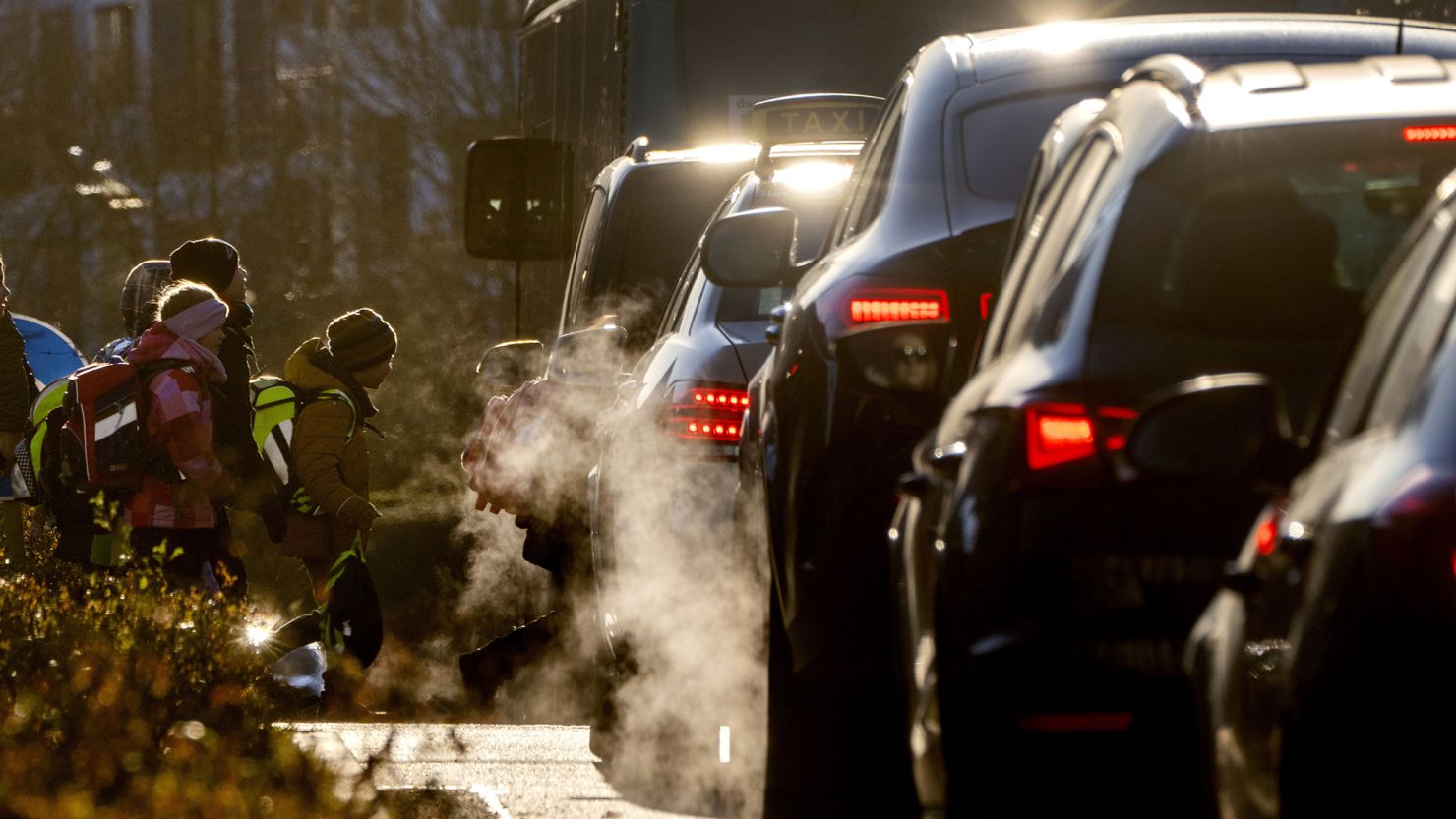The continued global surge in SUV sales has driven their climate-heating emissions to nearly 1 billion tonnes of carbon dioxide in 2022, according to the International Energy Agency (IEA).
The 330 million sport utility vehicles currently on the roads emitted carbon dioxide equivalent to the combined national emissions of the UK and Germany last year.
If SUVs were considered a country, they would rank as the sixth most polluting in the world.
Environmental campaigners are increasingly alarmed by the environmental impact of SUVs.
On Monday night, the activist group Tyre Extinguishers deflated the tyres of hundreds of SUVs across Europe, marking the first anniversary of their campaign.
SUVs are larger and heavier than standard cars, consuming on average 20% more fuel. The rising number of SUVs in 2022 accounted for one-third of the global increase in oil demand.
The IEA reports that SUV purchases have grown significantly in recent years, rising from 20% of new car sales in 2012 to 46% in 2022.
This trend persisted last year, with notable growth in the US, India, and Europe, even as the overall number of car sales slightly declined.
Electric SUVs constituted about one in six SUVs sold in 2022. However, IEA experts warned: “Electric SUVs are growing in popularity, but not quickly enough to offset the increasing oil consumption and emissions of the wider fleet.
Electric SUVs also require larger batteries to power them, so a growing electric SUV market would impose additional pressure on battery supply chains and further increase demand for the critical minerals needed to make the batteries.”
Currently, SUVs emit 700 megatonnes of CO2 annually, approximately equivalent to the combined output of the UK and the Netherlands.

On Monday, Tyre Extinguisher groups targeted cities such as London, Paris, Berlin, and Milan.
Over the past year, the activists claim to have deflated more than 10,000 tyres across 17 countries, including the US and New Zealand, by jamming air valves with lentils.
A spokesperson for the group stated: “Things were quiet over the winter, but we are now emerging ready for another year of lentil-based action.
We act because politicians will not take even baby steps to make our streets and climate safe. We won’t stop until these polluting vehicles are history.”
The group’s demands include “bans on SUVs in urban areas, pollution levies to tax SUVs out of existence, and massive investment in free, comprehensive public transport.”
Meanwhile, electric car sales saw a significant boost in 2022, climbing by 60% from the previous year to surpass 10 million vehicles, according to the IEA. However, 29 million non-electric SUVs were sold during the same period.
Julia Poliscanova, senior director for vehicles and e-mobility at the European campaign group Transport & Environment, highlighted an emerging issue: “Carmakers are culling small cars in pursuit of profit.
VW, Stellantis, and BMW have all said they are moving towards selling fewer cars and focusing on more premium SUV models. But larger cars put more pressure on the planet.”
“For drivers, this means more expensive models and higher running costs, especially at a time of high energy prices,” she added. “Given the stakes, regulators should ensure European small cars don’t disappear.
The best way is to tax big cars. Subsidies for electric cars should support entry-level EVs that are made in Europe.”
In 2021, the UK’s National Audit Office revealed that increasing sales of SUVs and rising road traffic had effectively negated the CO2 emission reductions achieved through electric car sales.

